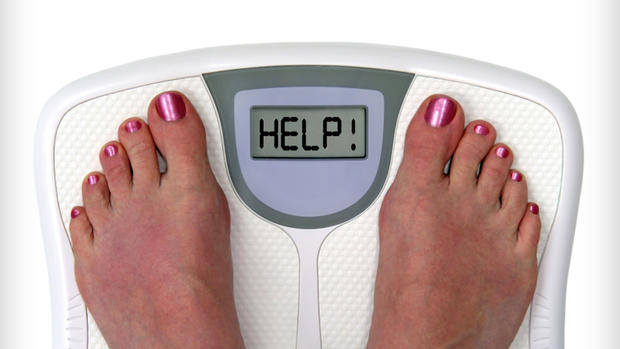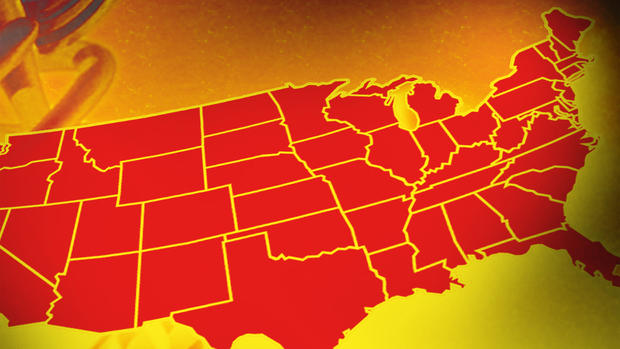New survey tracks U.S. obesity rates: Where does your state stack up?
The most obese state in the country has almost double the proportion of plus-sized citizens than the least obese state, according to a new survey.
The newly-released Gallup-Healthways Well-Being Index shows Colorado has the fewest obese citizens in the country, with 18.7 percent of its population obese. On the other side of the belt loop, West Virginia reported the highest obesity rate, with 33.5 percent of its population being obese.
Colorado is the only U.S. state with an adult obesity rate smaller than 20 percent, the report found. The Centennial State has held the title of thinnest state for three years running, according to Gallup-Healthways.
For West Virginia, the new numbers mark the third year in a row as the state with the highest obesity rate. But according to the latest figures, the state's obesity rate is down from 35.3 percent in last year's survey.
Obesity rates in each state were not statistically different in 2012 when compared with findings from 2011, with the exception of four states: New Jersey, Georgia -- which showed increases in obesity rates -- and North Carolina and Delaware, which saw decreases.
Obesity rates continued recent regional trends and were highest in Southern and Midwestern states and lowest in Western and Northeastern states (click slideshow to the left to see where your state stacks up).
The survey found the national obesity rate held steady at 26.2 percent in 2012 -- compared with 26.1 percent in 2011 -- but is still higher than the 2008 U.S. obesity average of 25.5 percent.
The Centers for Disease Control and Prevention estimates that 36 percent of American adults are obese.
"Obesity is now one of Americans' top health concerns -- surpassing smoking and alcohol -- with nearly four in 10 Americans saying it is an extremely serious problem to society," wrote Katie Bass for Gallup. "With obesity rates up in nearly all age groups since 2008, it is a problem that requires the nation's attention."
Gallup and Healthways have been tracking Americans' weight situation daily since January 2008, explained lead researcher Dr. Carter Coberley, vice president of health research and outcomes at Healthways. Coberley told CBSNews.com that the data comes from a nationally representative sample obtained from 1,000 completed phone calls used through random digit dials. Starting in 2008, researchers have obtained about 1.5 million responses, he said.
One thing that interested Coberley's team is that the results suggest a fairly significant link between social relationships and obesity. The state and city-wide data reported clusters of obesity rates, he said. Coberley said he doesn't "want to go so far as to say your friends are making you fat," but perhaps there can be certain obesity drivers in these regions that researchers can take a closer look at.
For example, some metropolitan areas have become so impoverished, he said, that there are so-called food deserts in these regions where grocery stores and other food retailers have moved out.
The research was part of the Gallup-Healthways Well-Being Index, which reported on other health problems -- such as rates of high blood pressure and diabetes rates -- and also general quality of life measures.
Coberley said the survey showed overall well-being plummeted in places where obesity began popping up.
What can be done to reverse the trends?
"If you really want to get ahead of this, you got to target this in your community and in your workplace," he said.
He called for a synergistic effort to boost America's well-being, where community organizations and employers can work together to see the root causes of obesity within their region, and come up with targeted action plans.
"Not only does it impact your function physically, but (obesity) impacts your ability to be productive in the workforce," he said.
To find out more, visit the Gallup-Healthways Well-Being Index.

